Media | Articles
The golf cart is king at The Villages, but the grass isn’t all green

Three weeks ago a story posted on Slate carried the subhead, Why golf carts—golf carts!—are a transportation mode of the future. It cited a Harvard Business School study from seven years ago that concluded a “souped-up golf cart” offered transportation’s “most transformative potential.”
“Indeed,” said the Slate story, “these puttering vehicles, most often associated with leisure and affluence, just might provide a pathway toward safe, affordable, and entertaining rides for the masses.”
The Villages, the massive Central Florida retirement community that uses golf carts as the main source of transportation for its 130,000-plus residents, has been on top of this trend for some time. In September of 2005, Villages residents strung together 3321 carts in what the Guinness World Records lists as the largest golf cart parade. Even then, that was a drop in the bucket compared to how many carts were in the Villages.

And how many are here now?
It’s impossible to tell. They don’t have to be licensed, so an accurate number is elusive. A story from last October in the developer-owned newspaper The Villages Daily Sun (the Villages developers also own an oldies radio station and a TV station) tried to come up with a number. It asked Christopher Laufersky, director of sales for The Villages Golf Cars, which boasts four dealer locations:
Marketplace
Buy and sell classics with confidence
Let’s say that each occupied home in The Villages—69,529 as of Sept. 30—has at least one golf cart, with only a small percentage of the population not owning one, he said. Then consider that many residents actually own two golf carts per home. “It’s got to be somewhere between 70,000 to 80,000 golf carts,” which easily makes The Villages the world’s number one golf cart community, Laufersky said. “Our manufacturers who have relationships in other communities say there is nothing to this scale.”
Richard Brooks, of The Villages Discount Golf Cars (three locations), disagrees. “There has to be almost 100,000 golf cars here,” he said. “No question.”
Indeed, most everything you need on a daily basis—from groceries to doctors to movie theaters—can be accessed by the 100 miles of cart trails that pass through cart-only tunnels and over multiple major cart-only bridges that span the Florida Turnpike and U.S. Highway 441.

“There’s really no reason to own a car unless you need to go out of town,” said Rose Leary, a Boston resident who is staying with friends in The Villages while she shops for her own home. “They lent me one of their golf carts, and I’m having a ball riding all over the place. My car hasn’t moved since I got here.”
Golf carts have been part of The Villages since before it was formally founded in 1992. When the basic community started in the 1960s, it was essentially a group of trailer parks that featured free golf. There are 57 golf courses now.
The most recent U.S. census said in 2021 that The Villages was America’s fastest-growing community, and the number of carts has skyrocketed along with the population.

Regardless of the actual number of carts, The Villages has long been studied as a model community for the transportation future. The Villages stretches into two counties, and at 32 square miles, it is larger than Manhattan. On top of that, it has acquired thousands more acres into which it can expand.
The population is centered around 17 villages-within-The Villages, each a separate community (or “special purpose district, established pursuant to Florida State Statutes,” says a Villages website). Crime in The Villages, aside from domestic disputes and the occasional drunken bar fight, is minimal, though the community’s cart world isn’t entirely rosy. In 2017, for example, a golf cart chop shop was busted, thus explaining multiple cart thefts in the area.
The carts can be dangerous, too. A study by the Taylor & Francis Group “compiled information about golf cart crashes in The Villages between 2011 and 2019. During the observation period, a total of 875 golf cart-related accidents occurred, representing an average of 136 crashes, 65 hospitalizations and nine dead or disabled annually. Of all crashes, 48 percent resulted in hospitalization, severe trauma, or death. Of these, ejection occurred in 27 percent, hospitalization in 55 percent and death or disability in 15 percent of crashes,” said Villages-News.com, reporting on the findings.
The study concluded that seat belts, which are not mandatory, could save lives. Nothing much is mandatory, it turns out; though some carts are outfitted with belts, turn signals, brake lights, satellite radio, and even rear-view cameras. Lights are required if you drive carts at night. Insurance on carts is available, but again, optional.
Two laws are on the books. One is that you can’t drive a cart unless you are at minimum 14 years old, the importance of which was underscored by a recent crash where a woman let her nine-year-old granddaughter drive. The cart rolled over, and the grandmother was ejected and hospitalized.
The other law is that carts cannot exceed 20 mph, enforced by an engine governor to prevent faster speeds. No one advertises it—and there are indeed dozens of cart-related ads in The Villages Daily Sun—but it seems everybody knows someone who is mechanically inclined and willing to bypass the governor. With that change, perhaps plus some mild engine work, different gearing, and bigger tires, there are reportedly carts here that can top 40 mph. And people do get tickets for speeding, but it’s rare.
The Villages has also seen arrests for carting while intoxicated, and you can lose your driver’s license for that. “Even seniors who have no business driving anymore zip around like teenage joy riders, say residents. Crashes are not uncommon, and visitors are warned to watch out for bad drivers—and drunk ones,” said the New York Times in one of its multiple stories about The Villages and its golf carts.

While most of the carts are the typical ones you see on a golf course, a surprising number of Villagers look for personalization, often ending up at Village Streetrods, where general manager Brandt Bell has a showroom full of new and used carts that resemble hot rods. Dennis Williams owns a Streetrod cart, purple with flames. “It’s something different,” he said. “I like it.” Another advantage of the Streetrod is that most have a “frunk” in the front, good for carrying home groceries from the seven Publix grocery stores in The Villages. Prices average about $25,000 for a new Streetrod.
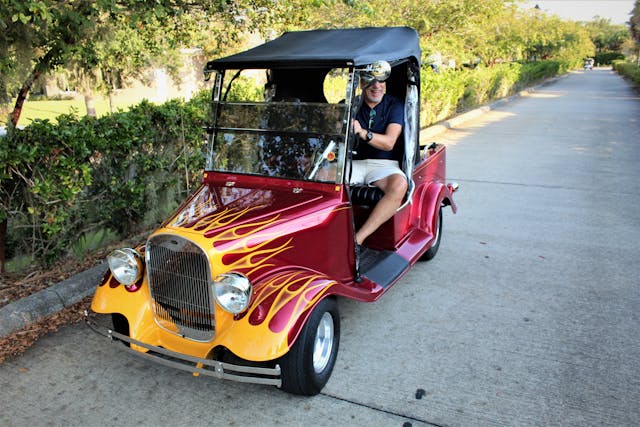
Williams’ cart is electric, but most in the community are gasoline-powered. “Ninety percent of what I sell is gas-powered,” Bell said. “The range is so much better.” The fuel of choice is 90-octane ethanol-free gasoline, because ethanol is tough on small engines, especially if you keep your cart frequently parked. There are carts with new lithium-ion batteries, though, that have increased the range per charge.
Rose Leary, the future Villages resident, started her (gasoline-powered) cart, and motored away, possibly part of the transportation future. “If we’re ready for it, a better future of mobility is right there waiting for us,” said Slate. “You can catch a glimpse at your local golf course.”
If that future does indeed arrive, we’d best take a real long look at The Villages.
Check out the Hagerty Media homepage so you don’t miss a single story, or better yet, bookmark it.
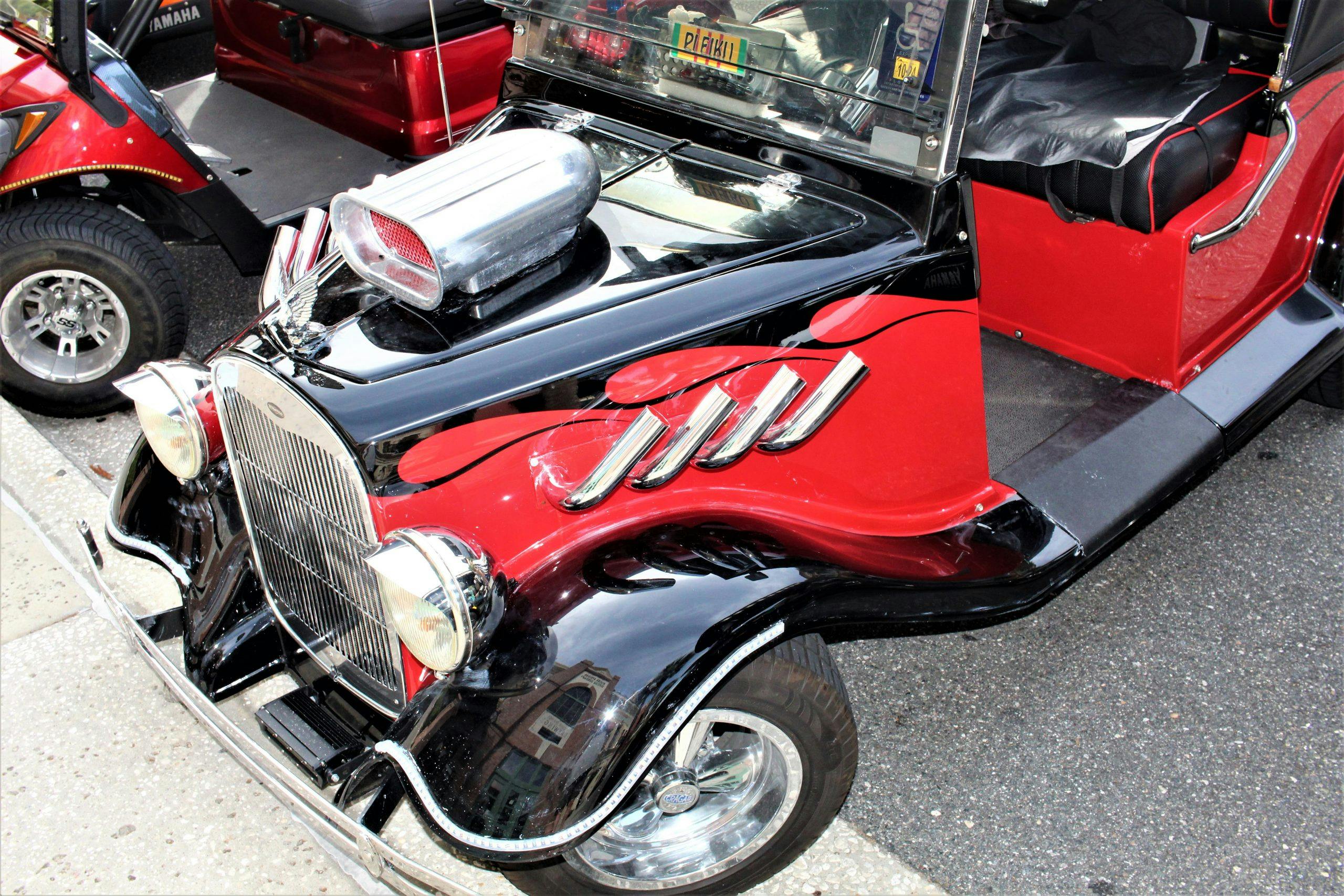
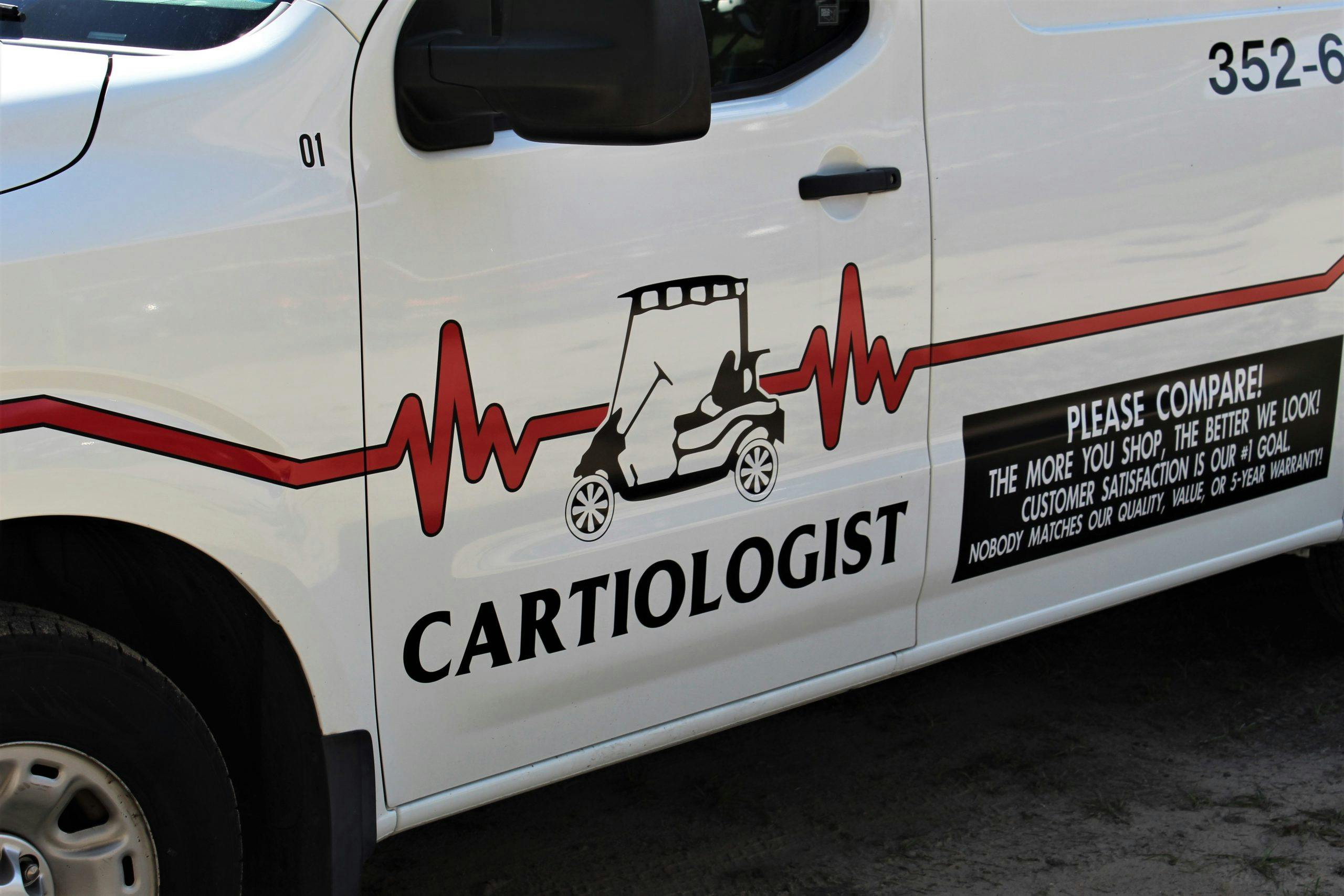
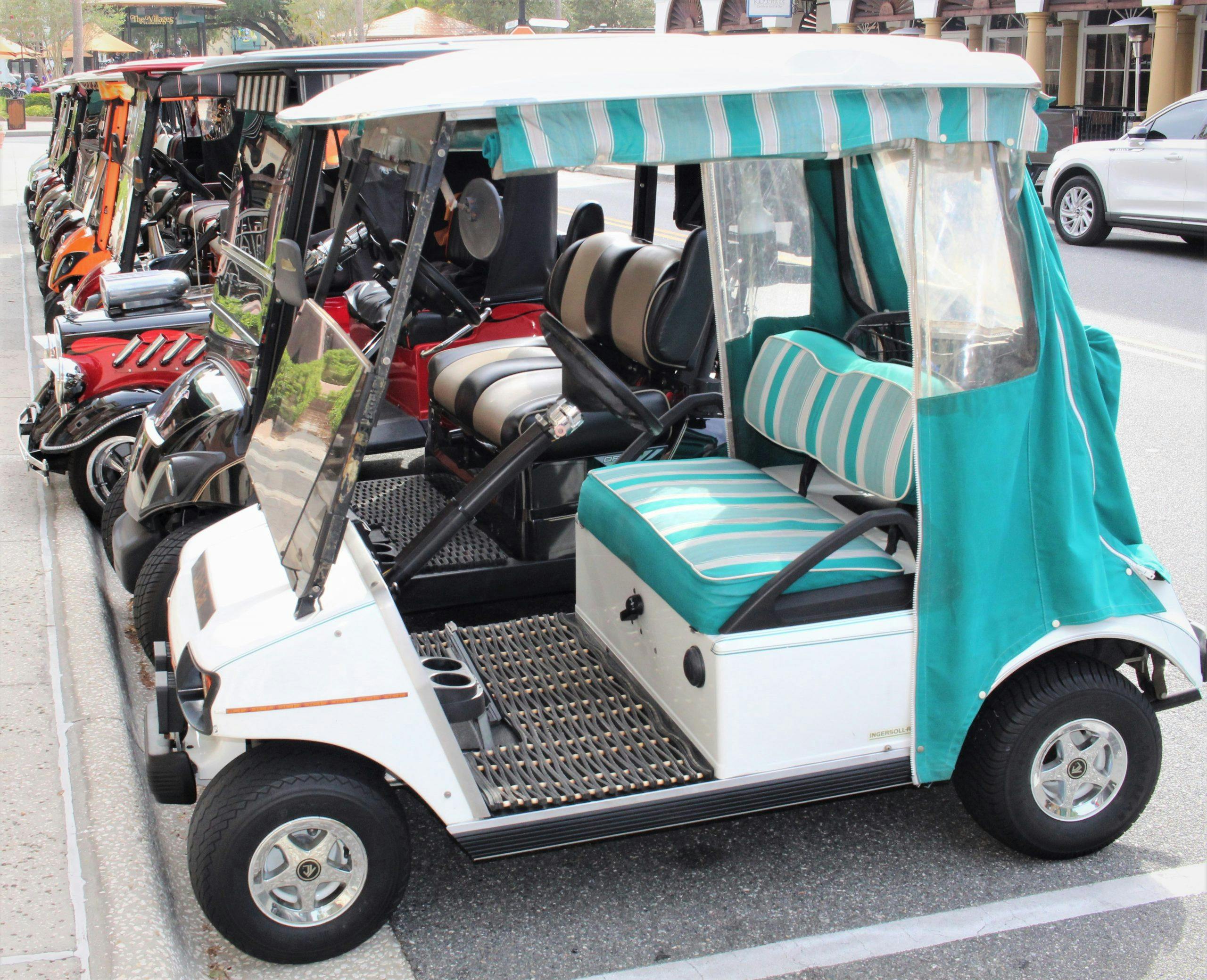








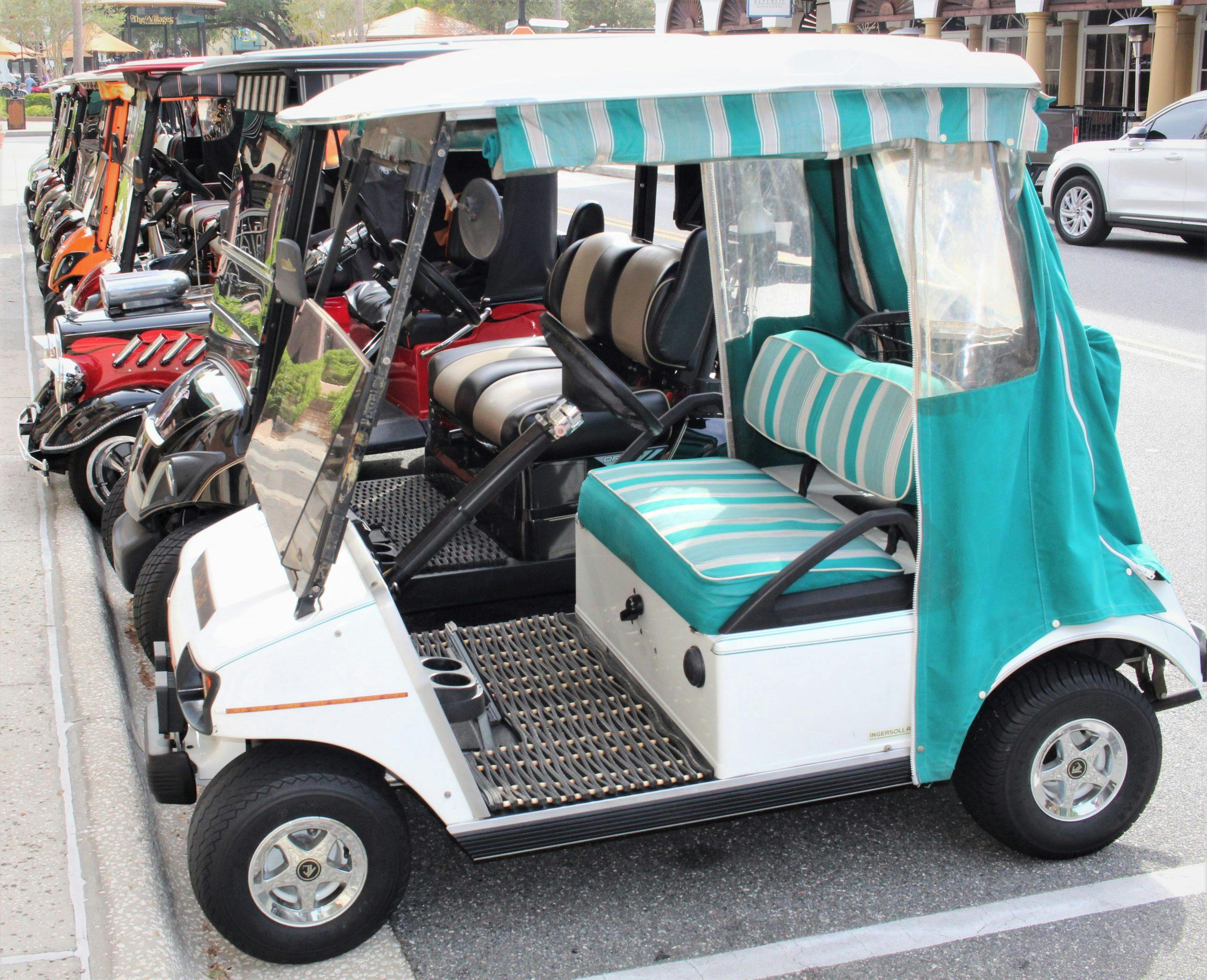


please call roy 905 510 2256
Li-ion carts are the future and far and away a better choice than the primitive, belt-driven noisy, smelly gas carts. Li-on are less expensive, easily charged and offer 70+ miles of range, more than enough for days and days of driving. With a 5KW battery, the operating cost is also far less than the outdated gas carts.